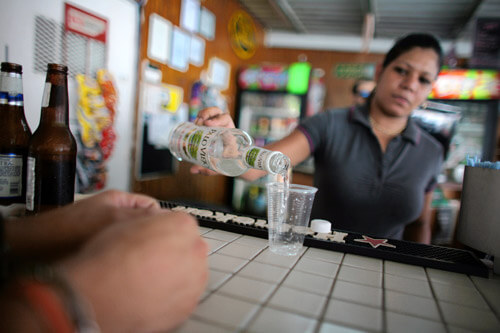A new World Bank Group report finds that over the past year, 50 percent of economies in the Caribbean implemented at least one reform, making it easier for local entrepreneurs to do business.
The report, released in Washington, D.C. on Tuesday, says there were 12 reforms in total, a historical high for the region.
“Doing Business 2015: Going Beyond Efficiency” finds that Jamaica had the region’s biggest improvement in the ease of doing business in the past year, thanks to three reforms in areas measured by the report.
It says Jamaica streamlined the requirements for starting a business, reduced the cost of getting an electricity connection, and established new credit bureaus while also adopting a new secured transactions law that broadens the range of assets that can be used as collateral.
Joining Jamaica in implementing multiple regulatory reforms were the Dominican Republic and Trinidad and Tobago, the report says.
The Dominican Republic made cross-border trade easier by reducing the number of documents required to import and export, improved the regulatory framework for credit reporting, and strengthened minority shareholder protections.
Trinidad and Tobago, among the 10 top improvers worldwide in this year’s report, made resolving insolvency easier by introducing a new restructuring proceeding, according to the report.
The twin-island republic also strengthened the rights of secured creditors during reorganization procedures, and it made starting a business easier by introducing online systems for employer and tax registration.
The report says such reforms are leading to “tangible benefits for entrepreneurs.”
For example, it says starting a business now takes 11.5 days for an entrepreneur in Trinidad and Tobago—on par with international best practice—down from 35.5 days in 2013.
“Entrepreneurs in the Caribbean continue to see gains in the business environment. With half the region’s economies making regulatory reforms in the past year, the Caribbean continues to move in the right direction,” said Rita Ramalho, Doing Business report lead author, World Bank Group.
“Yet while the region continues to reform, there is still room for further improvement in the business environment,” she added.
The report this year expands the data for three of the 10 topics covered, and there are plans to do so for five more topics next year, according to the World Bank.
In addition, it said the ease of doing business ranking is now based on the distance to frontier score, stating that this measure shows how close each economy is to global best practices in business regulation.
The report finds that Singapore tops the global ranking on the ease of doing business.
Joining it on the list of the top 10 economies with the most business-friendly regulatory environments are New Zealand; Hong Kong SAR, China; Denmark; the Republic of Korea; Norway; the United States; the United Kingdom; Finland; and Australia.
The Caribbean region includes the following economies: Antigua and Barbuda, The Bahamas, Barbados, Dominica, the Dominican Republic, Grenada, Haiti, Jamaica, St. Kitts and Nevis, St. Lucia, St. Vincent and the Grenadines, and Trinidad and Tobago.
The annual World Bank Group flagship “Doing Business” report analyzes regulations that apply to an economy’s businesses during their life cycle, including start-up and operations, trading across borders, paying taxes, and resolving insolvency.
The aggregate ease of doing business rankings are based on the distance to frontier scores for 10 topics and cover 189 economies, the bank said.
It said Doing Business does not measure all aspects of the business environment that matter to firms and investors.
For example, it does not measure the quality of fiscal management, other aspects of macroeconomic stability, the level of skills in the labor force, or the resilience of financial systems, the World Bank said.
It said the report’s findings have stimulated policy debates worldwide and enabled a growing body of research on how firm-level regulation relates to economic outcomes across economies.



























